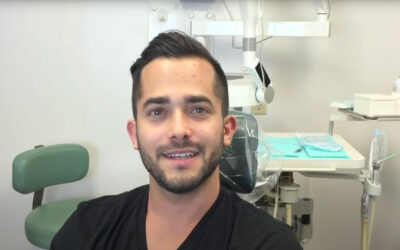Is Bone Grafting Right for You?
WHAT IS A BONE GRAFT?
Bone grafting is a process that replaces missing bone, and severe or complex fractures with existing bone from another part of the body or bone augmentation material. This procedure was originally developed in orthopedics to help patients who have suffered massive bone fractures. Today, grafting is most common in dental procedures. Typically, for implants, bone augmentation material is placed in the area with insufficient bone. Over time, the patient’s bone will grow into the new material, and the graft will be complete. The periodontist will then assess if the jawbone can support the implant, and the procedure can progress.
DO I NEED A BONE GRAFT?
This process is required for a variety of reasons. Sometimes when a tooth is lost, patients wait years before they seek replacement. Over that time, it is common for the bone to naturally wear down. If a cavity is serious enough, an infection can grow and form an abscess. This abscess can literally eat away the jawbone. Patients might also experience bone loss after extreme trauma. All of these situations could require bone grafting.
SCHEDULE A CONSULTATION WITH THE CENTER
To know if you qualify for bone grafting, or if you’re ready for dental implants, the first step is finding a doctor that’s right for you. If you want to learn more about bone grafting in Brentwood call the CENTER for Advanced Periodontal & Implant Therapy today to schedule a consultation. Dr. Aalam and Dr. Krivitsky are dedicated to providing their patients the most cutting edge, comfortable care possible. Contact us by phone at 310-826-8242 or fill out our contact form.
You May Also Like...
Understanding TMJ Jaw Pain and Seeking Specialist Help
Navigating the complexities of jaw pain requires a deep dive into the various causes and conditions that lead...
Stem Cells Tissue Regeneration: An Alternative to Classic Gum Graft
Gum recession is a common dental problem that affects millions of people worldwide. This condition occurs when the...
Deep Cleaning Teeth With Scaling And Root Planing
If you have gum disease, the best way to treat periodontitis is to remove hard-to-reach tartar buildup through scaling...



